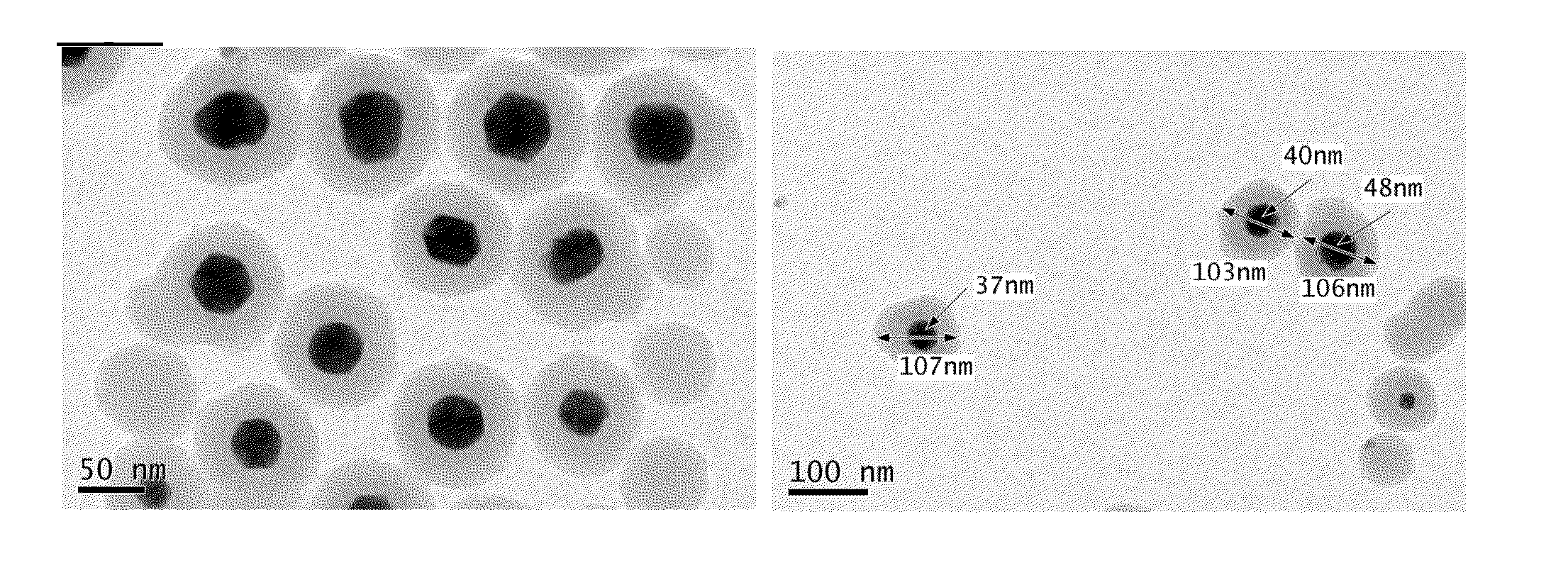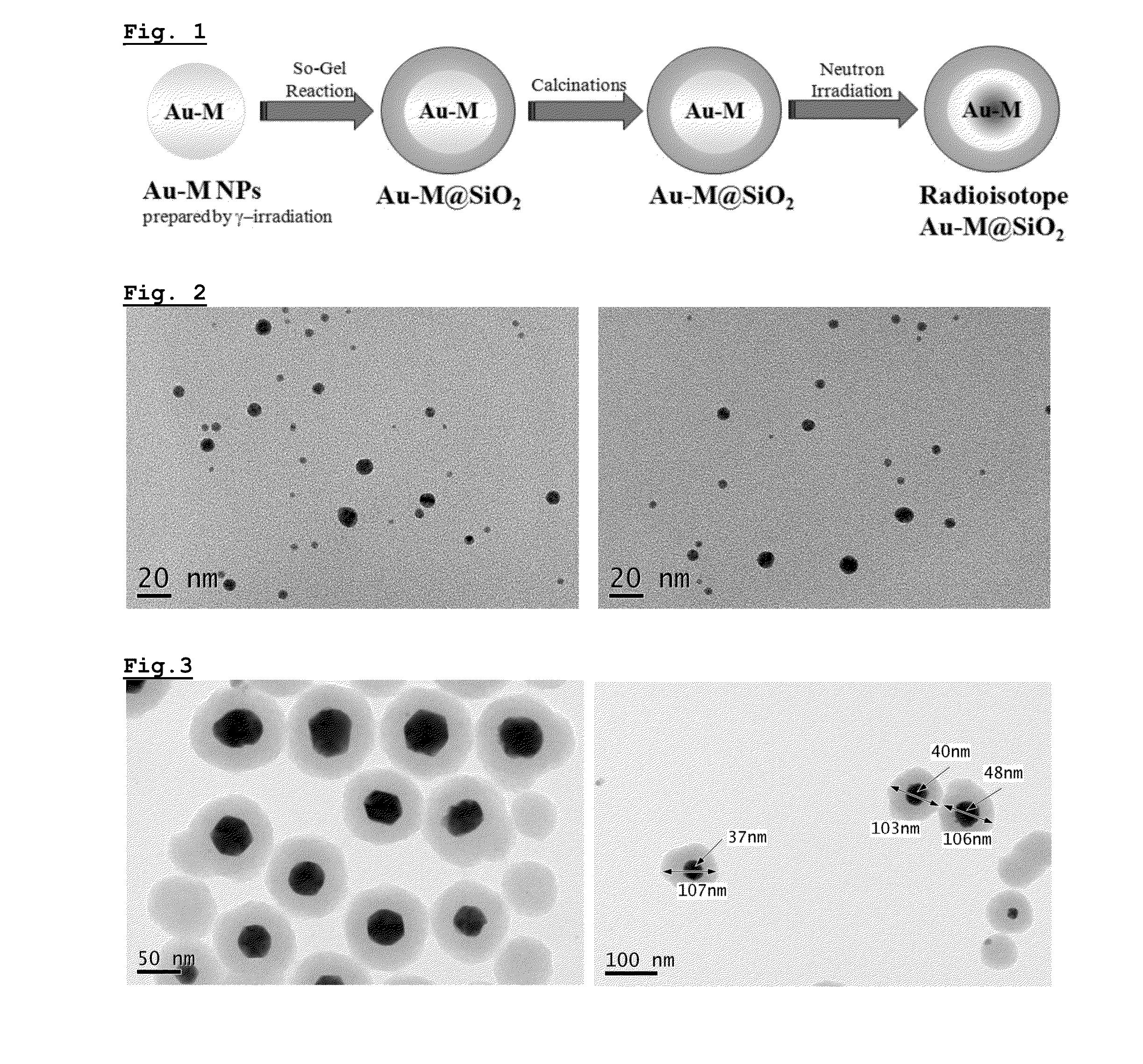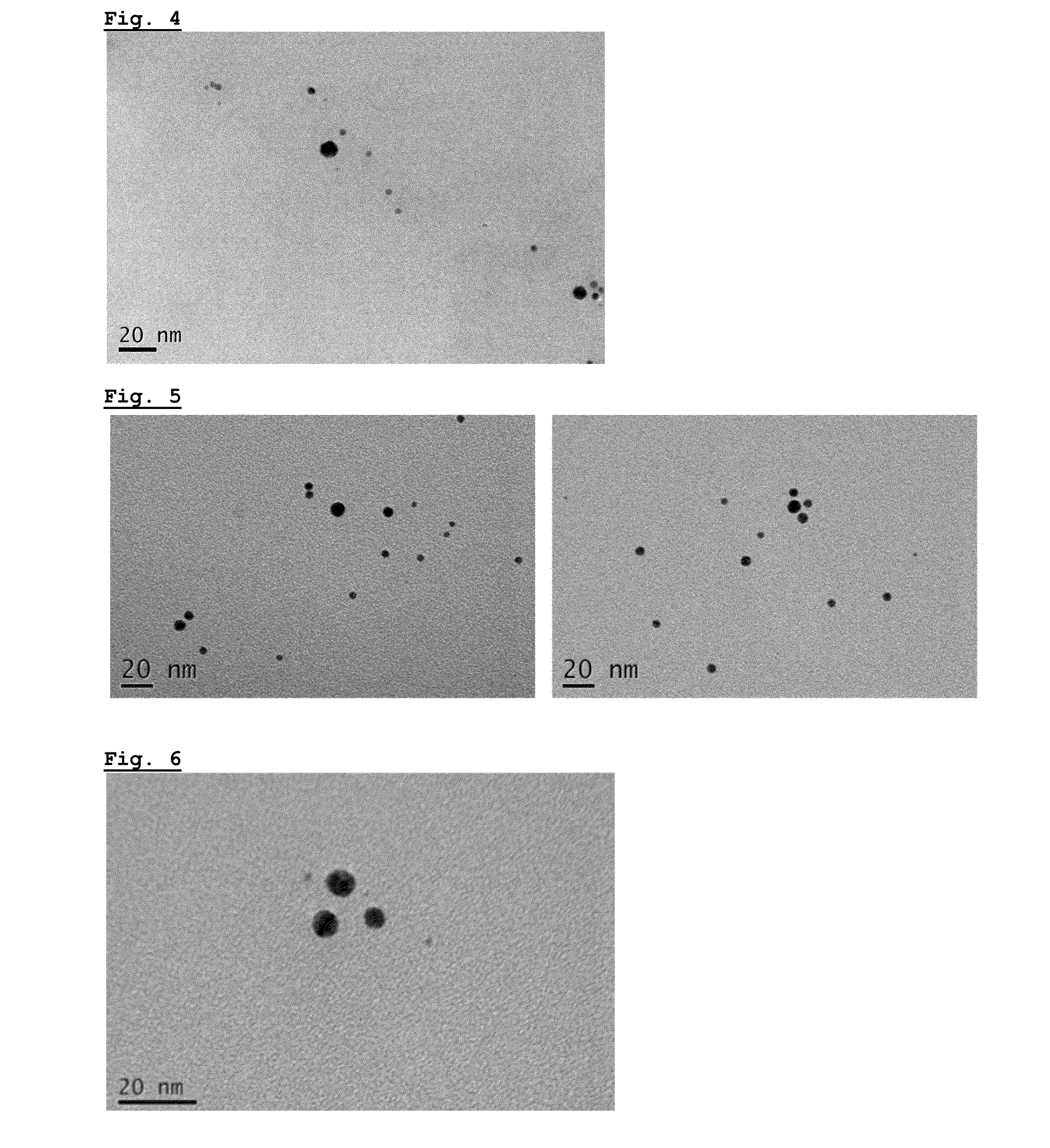Heteronuclear radioisotope nanoparticle of core-shell structure and preparation method thereof
a radioisotope and core-shell technology, applied in the direction of instruments, liquid/fluent solid measurements, other chemical processes, etc., can solve the problems of aggregation among the nanoparticles, the risk of colloid stabilizer itself being activated, and the difficulty of mass production at room temperature, so as to reduce the risk of oxidization or agglomeration, and reduce the risk of aggregation
- Summary
- Abstract
- Description
- Claims
- Application Information
AI Technical Summary
Benefits of technology
Problems solved by technology
Method used
Image
Examples
example 1
Step 1. Preparation of Heteronuclear Nanparticle Core by Radiation Reduction
[0077]0.19 mmol of HAuCl43H2O (0.078 g) and AgNO3(0.033 g) were dispersed in tertiary distilled water (376 ml) so that Au and Ag were at 1:1 mole ratio. To the fluid in which HAuCl43H2O and AgNO3 were dispersed, polyvinylpyrrolidone (1 g) as colloid stabilizer and isopropanol (24 ml) were added and mixed. The reacted fluid underwent nitrogen purging to remove oxygen existing in the solution, and 60Co-γ was irradiated for 3 hr, in a manner in which the total dose of radiation was 30 kGy. The reacted fluid was yellow before reaction, and turned into purple after irradiation so that Au—Ag nanoparticle, which was stabilized with polyvinylpyrrolidone, can be prepared.
Step 2. Preparation of Heteronuclear Nanonparticle with Core-Shell Structure by Sol-Gel Reaction
[0078]Colloid fluid (4 ml), in which the Au—Ag nanoparticle core stabilized with polyvinylpyroolidone and prepared in step 1, was mixed with isopropanol (...
example 2
[0081]The radioisotope nanoparticle having Au—Ni core and SiO2 shell was prepared in the same manner as that in Example 1, except that Ni instead of Ag was used as the nuclides of the nanoparticle core and 0.19 mmol of HAuCl43H2O (0.078 g) and Ni(NO3)26H2O (0.055 g) were used to 1:1 mole ratio.
example 3
[0082]The radioisotope nanoparticle having Au—Co core and SiO2 shell was prepared in the same manner as that in Example 1, except that Co instead of Ag was used as the nuclides of the nanoparticle core and 0.19 mmol of HAuCl43H2O (0.078 g) and CoCl26H2O (0.045 g) were used to 1:1 mole ratio.
PUM
| Property | Measurement | Unit |
|---|---|---|
| temperature | aaaaa | aaaaa |
| core-shell structure | aaaaa | aaaaa |
| structure | aaaaa | aaaaa |
Abstract
Description
Claims
Application Information
 Login to View More
Login to View More - R&D Engineer
- R&D Manager
- IP Professional
- Industry Leading Data Capabilities
- Powerful AI technology
- Patent DNA Extraction
Browse by: Latest US Patents, China's latest patents, Technical Efficacy Thesaurus, Application Domain, Technology Topic, Popular Technical Reports.
© 2024 PatSnap. All rights reserved.Legal|Privacy policy|Modern Slavery Act Transparency Statement|Sitemap|About US| Contact US: help@patsnap.com










